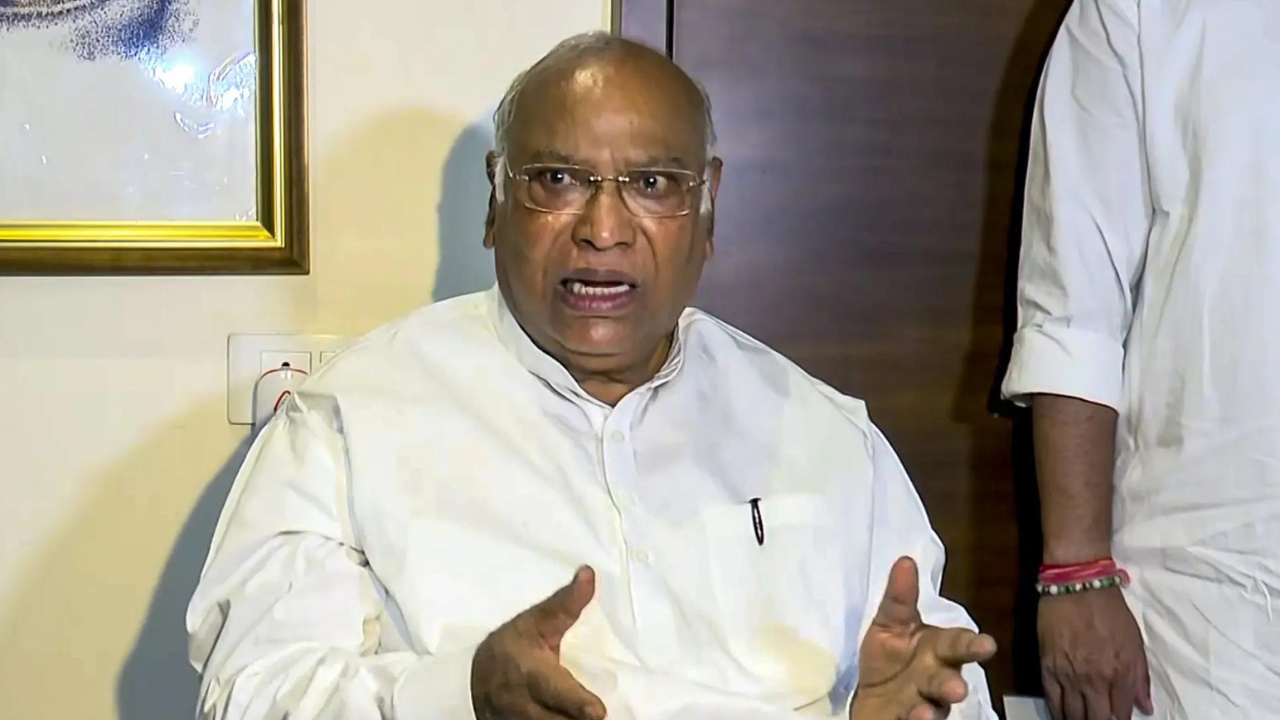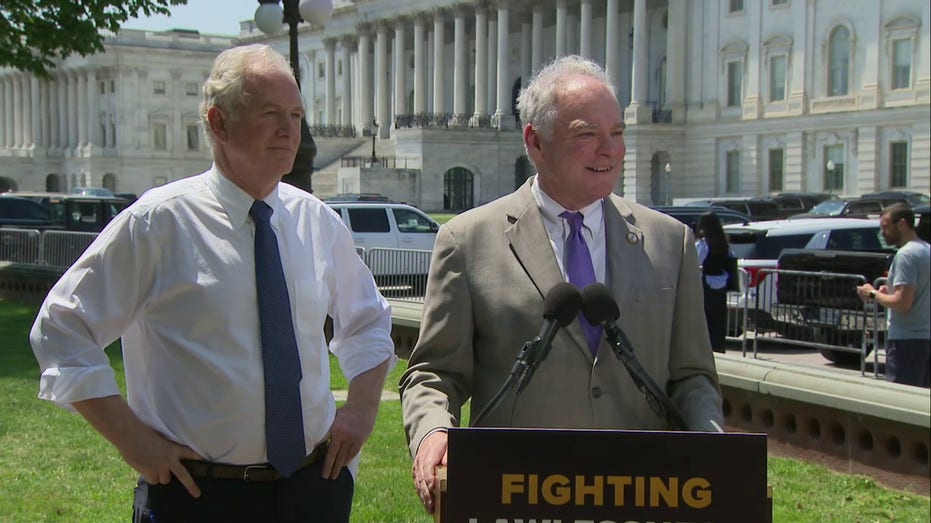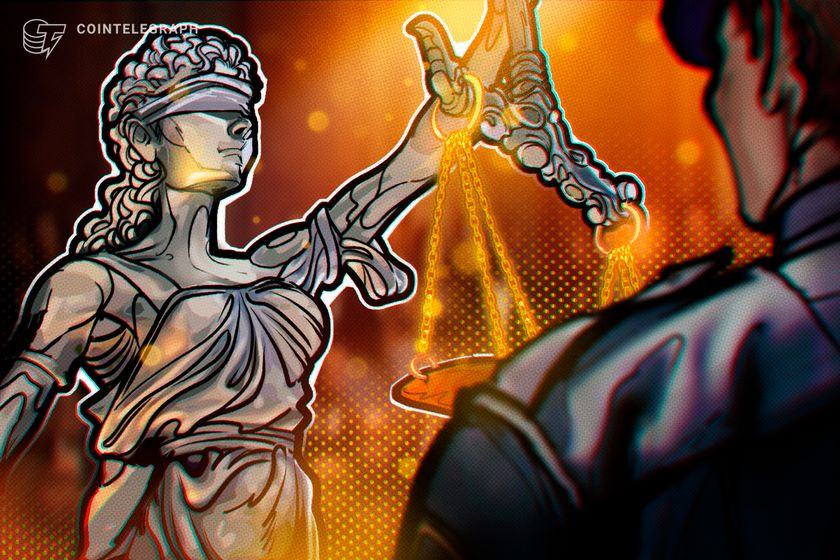Judges Who Break Federal Law Can And Should Be Prosecuted
As the old saying goes, birds of a feather flock together. How else can you make sense of or explain The post Judges Who Break Federal Law Can And Should Be Prosecuted appeared first on The Political Insider.


As the old saying goes, birds of a feather flock together.
How else can you make sense of or explain how two unrelated state court judges, 1,072 miles (Massachusetts and Wisconsin) and seven years apart, broke federal law by actively assisting an illegal alien evade capture by federal agents who had all of the necessary immigration paperwork to detain or remove the alien from the United States?
The facts of their cases are eerily similar, forcing you to ask yourself, “What the heck was this judge thinking when she knew the feds had already prosecuted another judge for doing the exact same thing?”
And who are the members of this unique judicial sisterhood? Milwaukee County Circuit Court Judge Hannah C. Dugan and Massachusetts District Court Judge Shelley Joseph. Dugan has already been “relieved” of her official duties by the Wisconsin state Supreme Court and “prohibited from exercising the powers of a circuit court judge,” while Joseph has pending formal charges filed against her by the Massachusetts Commission on Judicial Conduct for serious ethical and legal violations.
Judge Shelley Joseph of Boston
In 2018, Judge Shelley Joseph was charged by the U.S. Justice Department for conspiring with her bailiff to set an illegal alien free from her courtroom. Jose Medina-Perez was a twice-deported illegal alien, whom the Newton, Massachusetts, police arrested on charges of narcotics possession and being a fugitive from Pennsylvania. U.S. Immigration and Customs Enforcement issued a federal immigration detainer warrant on him that was forwarded to the police department, the court, and all lawyers involved in the prosecution.
On March 30, 2018, Joseph called Medina-Perez’s case. But Joseph ordered the ICE agent present out of her courtroom, stating that if the defendant was released, he would be released into the lobby of the courthouse. The ICE agent exited the courtroom and waited in the public lobby.
Instead, the Pennsylvania fugitive warrant was dismissed, the illegal alien was released on his own recognizance for the drug prosecution, and the judge told her bailiff to use his security access card to open a rear security exit of the courthouse so Medina-Perez could escape the ICE agent waiting in the courthouse lobby.
When a federal grand jury indicted her and her bailiff for obstruction of justice, the U.S. Attorney for the District of Massachusetts, Andrew Lelling, said that officers of a court can’t “pick and choose” the “federal laws we follow, or use our personal views to justify violating the law.”
The U.S. Court of Appeals for the 1st Circuit rejected Joseph’s claim that as a state judge she was somehow immune from prosecution by the Feds. The prosecution was only dismissed after the judge agreed to submit herself to the state commission on judicial misconduct, which has filed formal charges against her after its investigation found that she had violated multiple laws and the judicial code of conduct.
Related: House Passes Bill Limiting District Court Judges From Pausing Executive Actions
Judge Hannah C. Dugan of Milwaukee
Fast forward to 2025 and the copycat case of state Judge Hannah C. Dugan and another previously deported illegal alien who had reentered the country.
According to the FBI criminal complaint, Eduardo Flores-Ruiz entered the U.S. illegally and was deported back to Mexico in 2013.
On March 18, 2025, Flores-Ruiz was charged in Milwaukee Country Circuit Court with three counts of “Domestic Battery, Abuse and Infliction of Physical Pain or Injury.” Alerted to his arrest, six federal agents planned to arrest Flores-Ruiz after his first appearance in the local court. The six, consisting of an ICE officer, a Customs and Border Protection officer, two FBI agents, and two DEA agents, dressed in plain clothes to conduct the courthouse arrest in a safe and low-key manner.
They identified themselves to a court security guard and explained the purpose of their visit. The guard’s supervisor asked the team to wait to arrest Flores-Ruiz until after his appearance in courtroom 615 was completed. They agreed and proceeded to Dugan’s courtroom.
Once there, the two FBI agents advised the courtroom deputy that they were there to arrest Flores-Ruiz after his court appearance.
While they were waiting outside the courtroom, Flores-Ruiz’s public defender took photos of the arrest team, minus a Drug Enforcement Administration agent who was not seated with the group.
When Dugan was informed that ICE agents were in the hallway waiting to arrest Flores-Ruiz, she blurted out that was “absurd,” left the bench, and with another unnamed judge, angrily confronted the agents in the hallway. She told them they needed to leave the courthouse.
When Dugan was informed they were there to effectuate an arrest, she asked if they had a judicial warrant. An agent politely informed her that he had an administrative warrant, to which Dugan stated (incorrectly) that he needed a judicial warrant. The agent offered to show the warrant to the judge, but instead, she ordered the agents to speak to the chief judge, demanding they report to his office.
Dugan even escorted the arrest team to the reception area of the chief judge’s office, not knowing that one agent had remained behind outside of her courtroom.
Dugan then went back to her courtroom, but not before she looked down the hallway for additional agents.
Dugan then escorted Flores-Ruiz and his lawyer out of the courtroom through the jury door, a secure door only used for deputies, juries, court staff, and in-custody defendants being escorted by deputies.
She returned to her courtroom and conducted hearings in other cases on the morning’s docket, never telling the prosecutor or the victims in Flores-Ruiz’s case (who were in the courtroom the whole time), that the case had been secretly adjourned with no public announcement.
Fortunately, despite Dugan’s attempt to help Flores-Ruiz escape federal agents, there were more agents waiting outside the courthouse. They were able to identify and capture him about a block from the courthouse after he started running away.
Criminal Complaint Against Dugan
Dugan was arrested after the FBI filed a criminal complaint against her for violating 18 U.S.C. Sections 1505 and 1071. The former makes it a federal crime to obstruct a proceeding before a department or agency while the latter makes it a federal crime to conceal a person from arrest. Both crimes are punishable by a maximum five years in prison.
The case will now be evaluated by the local U.S. attorney, who will decide whether to present the case to a federal grand jury for indictment.
As one of us has written elsewhere, the Feds could (and likely should) consider adding the additional charge of 18 U.S.C. §1324, which makes it a federal crime when a defendant knowingly or in a reckless disregard of the fact that an alien has entered illegally “conceals, harbors, or shields from detection, or attempts to conceal, harbor, or shield from detection, such alien in any place, including any building.”
Like all defendants, Dugan is presumed innocent until proven guilty but the evidence against her seems overwhelming.
In the meantime, Dugan may want to give Joseph a call and find out whether what Joseph did in 2018 was worth it and ask what the future holds for her given her alleged violation of federal law.
And by the way, she might want to study some American history. We settled the issue of whether federal law prevails over state law and whether state officials can defy the federal government in 1865.
Her side lost.
Syndicated with permission from The Daily Signal.
The post Judges Who Break Federal Law Can And Should Be Prosecuted appeared first on The Political Insider.
What's Your Reaction?





































































































